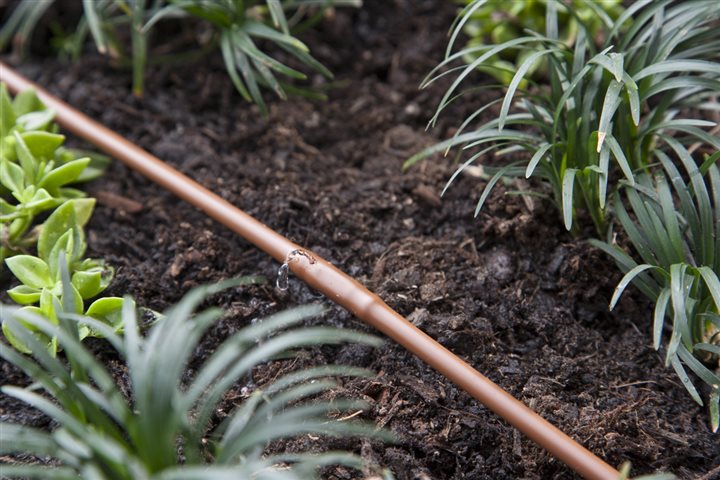Tips For Growing a Water-Conservative Garden
Families can decorate their homes with colorful flowers and bring healthy, home-grown foods to the table with gardens. Gardening, however, can use quite a bit of water, and in states struck by drought it’s important to conserve as much water as possible. However, you can still have a garden if you carefully plan what you plant, how you plant  it, and how you give it the water it needs. Here are some water-conservation tips for growing a garden and using the least amount of water possible:
it, and how you give it the water it needs. Here are some water-conservation tips for growing a garden and using the least amount of water possible:
- Choose plants that thrive in drier conditions. Vegetables like corn, spinach, mustard greens and some beans are drought-tolerant, and desert rose and snake plant are beautiful landscaping plants that need less water.
- Water only where it's needed so it doesn't go to waste. When you use a lawn sprinkler to water your garden, much of the spray misses your flowers and vegetables and ends up on the grass, the sidewalk or the neighbor's yard. Make certain the water gets to the roots of your plants via a drip-irrigation system. Drip irrigation uses 70 percent less water than underground sprinklers and frees the user from constantly hauling around hoses because the system stays in your garden all summer long.
- Water at night or in the early morning when the sun is least likely to evaporate the moisture. This allows as much of the water to penetrate to your plant's roots instead of evaporating.
- Build beds that encourage soil to stay damp as long as possible. Some ways to do this include digging the bed deeper to help loosen the soil prior to planting. This gives roots the chance to go reach deeper and gain access to where water might be more available. Also, once planted, cover the bed with a good layer of mulch or compost. This will help keep the soil good and moist.
- Raise vegetable crops during the rainy season. Many areas of the country have a cooler rainy season. Peas, leafy greens, radishes and other vegetables with short growing seasons are great for planting early in the spring and sometimes again late in the fall. Because temperatures are cooler and the early and late seasons tend to produce more rainfall, you can grow vegetables using less water.
Drought affects all areas of the country during different years, so even if you aren't living in a drought situation now, you could experience one next year or several years down the road. It's important to know what steps you can take to be more water conservative when it comes to your garden. Apply these tips to your vegetables and flowers this year to see how successful you can be at reducing the amount of water needed to grow your plants. (BPT)
Information courtesy of Chester County PA Realtor Scott Darling.




